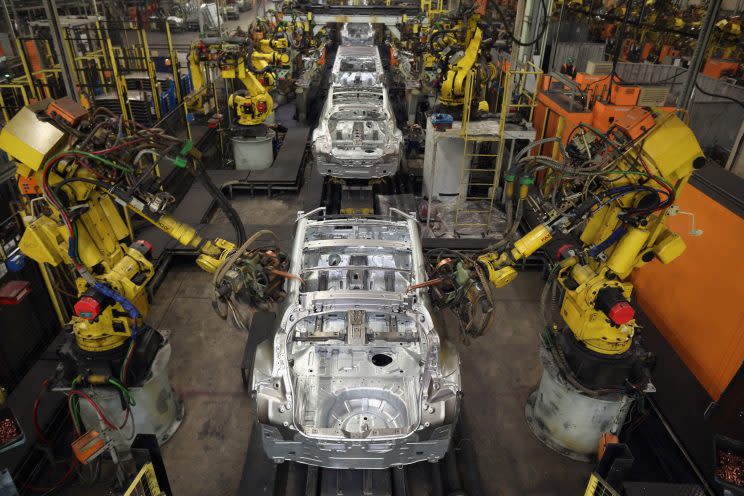Brexit won't stop the UK leading the fourth industrial revolution - Warwick Business School

Brexit might be the biggest political shift in the UK for a generation and preoccupying much, if not all, of the government’s time.
But perhaps an even bigger change is also rumbling all around us – the fourth industrial revolution. And, though Brexit could see the UK lose valuable research funding, it still has the skills to be at the forefront of this revolution that sees the coming together of physical, digital and biological domains through technology. It is something the government must not lose sight of in the negotiations with the EU and must make sure this is still in place at the end of it.
MORE: Brexit: ‘There is no place in Europe that can replicate London’s success’
The fourth industrial revolution, driven by artificial intelligence and ‘sensorisation’ of homes, cities, transport and a huge plethora of other connected gadgets through the ‘internet of things’, is sweeping across the world.
Digital data can move across country borders, cyber threats are on the increase and is becoming the new theatre of war. While, disruptive digital cloud platforms are scaling into retail, banking, media, health, transport and other industries. And now artificial intelligence looks set to change productivity, altering how we live and work in the next decade and beyond.
But what is less well understood is that we are also entering a post-Moore’s Law world where we are hitting the limits of silicon chips doubling power and seeing new technologies in the form of nanotechnology, bioengineering, gene therapy and materials science taking over the baton of progress instead.

All of this must also be set against the mega-trends of global climate change, the rapid rise in demand for energy and the huge increases in the world’s population pushing up the need for water, which is becoming more scarce, by 30 per cent by 2030, while there will also be a 50 per cent increase in demand for food.
MORE: Why UK business should not let Brexit deter M&A activity
These trends mean the government needs to look beyond Brexit and build a competitive advantage for UK plc in the fourth industrial revolution. Companies will drive this, but the government must make sure the infrastructure, especially universal access to superfast broadband and 5G mobile data connection, is in place.
Will the EU actually lead any of the fourth industrial revolution’s innovations? Historically the EU has struggled to create competitors to Amazon, Google and new innovations are typically international in nature. Recent research on the issues of coordinated multiple countries innovating together has found it burdensome and inefficient, but I remain hopeful a cross-border EU strategy can work as collectively it is the world’s largest market. That said, in practice it is highly fragmented and nation-centric.
The UK may lose access to the EU’s €80 billion Horizon 2020 fund, but researchers will look elsewhere instead as the foundations in the academic and research fraternity were built long before 1973’s membership of the union.
Indeed, the ‘burning platform’ that is Brexit may well see the rise of intelligent systems in the fourth industrial era become accelerated in the UK as the need to find a competitive edge will vigorously push business to respond. This may be optimistic, but, historically, this is what Britain has done.
MORE: Who is going to invest in the UK post-Brexit?
Brexit does raise questions over access to markets, a skilled immigrant workforce, EU funds and research collaboration and probably a range of other as yet unforeseen challenges, but UK research and development is a world leader in many of the fourth industrial fields already, especially medical and industrial research.
The UK has some of the world’s leading AI researchers, such as DeepMind, with a stable and viable economy, a long history of international trade around the world and envious soft power through its culture.
I’m not saying the issue of access to EU funding and research collaboration will not damage the UK in the short-term – the UK does around 50% of its trade with the EU after all. Financial institutions are already feeling the winds of change and automotive companies are frantically lobbying for workarounds for access to the EU supply chain.
But beyond Brexit I still wouldn’t bet against the UK research environment leading the world in many areas of the emerging fourth industrial revolution – history says you shouldn’t bet against the UK.
Mark Skilton is professor of practice at Warwick Business School and is co-author with Dr Felix Hovsepian of The 4th Industrial Revolution: Responding to the impact of Artificial Intelligence on Business

 Yahoo Finance
Yahoo Finance 

